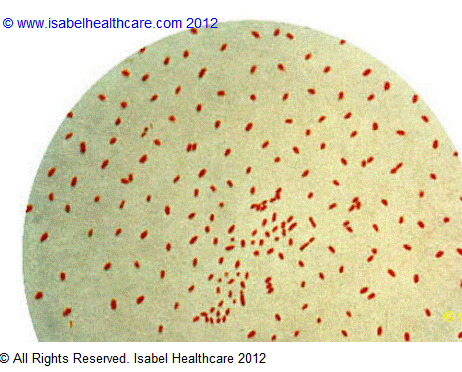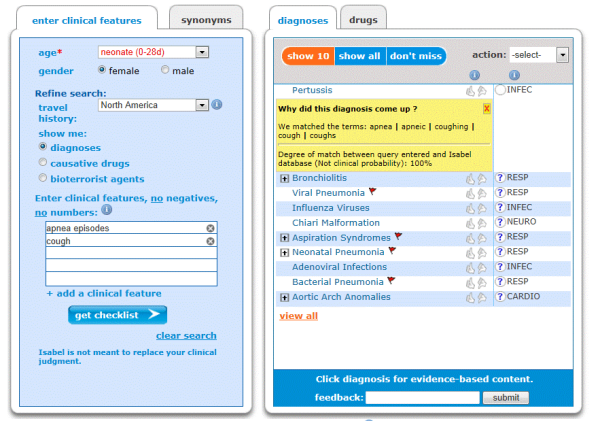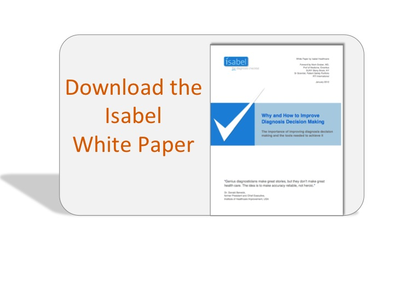- Privacy Policy
- Terms & Conditions
- Contact us
- ©Isabel Healthcare 2025
Pertussis: UK pregnant women to be offered pertussis vaccine
UK Offers Pertussis (Whooping Cough) Vaccine to All Pregnant Women
The Chief Medical Officer for England, Dame Sally Davies announced that all pregnant women will be offered the pertussis (whooping cough) vaccine due to concerns about a serious increase in prevalence of the disease in the UK which has resulted in nine infant deaths this year. The UK Health Protection Agency (HPA) stated that by August 2012, it had received reports of 4,691 cases of whooping cough so far this year. The total number of cases so far this year in the UK is now more than four times higher than the annual total number cases of 1,118 reported in 2011 and the 908 cases reported in the last ‘peak’ year which for the UK was 2008.
The UK Department of Health states that all pregnant women will be offered the whooping cough vaccination to protect their newborn babies, who are not normally vaccinated until they are between two and four months of age. The vaccine will boost the short term immunity passed on by the mother to their baby whilst still in the womb. The vaccine will be offered to pregnant women from week 28 of their pregnancy during routine antenatal appointments.
United States also has Battled Outbreak of Whooping Cough
In the US, in 2010 there were 27,550 reported cases of pertussis and it should be noted that many more are unreported. In 2011, fewer outbreaks were reported than in 2010 although sporadic outbreaks occurred across several states. During the first half of 2012, there have been increased numbers of pertussis cases reported across a majority of states. Provisional counts from the CDC surveillance system indicate that nearly 29,000 cases of pertussis have been reported to the CDC up until September 20 2012 and there have been 14 pertussis-related deaths in the same time period. The incidence rate among infants exceeds that of all other age groups, but there is also increased incidence in the 7 to 10 year age group and also adolescents 13-14 years of age.
Pertussis Recurring Trends and Stages
Pertussis is an endemic disease with peaks every 3 to 5 years. It is an upper respiratory infection caused by the gram-negative bacterium Bordetella pertussis and presents with a severe cough. It is possible to identify three stages as Pertussis progresses:
Stage 1: catarrhal stage (lasts 1 to 2 weeks). Symptoms present characteristic of an upper respiratory infection including rhinorrhoea, sneezing, low-grade fever and a mild occasional cough.
Stage 2: paroxysmal stage (lasts 1 to 6 weeks). Cough becomes more severe. Bursts of coughing increase in frequency and remain constant for 2 to 3 weeks and then gradually decrease in frequency.
Stage 3: convalescent stage (lasts 2 to 3 weeks). During this recovery stage, the cough becomes less severe and slowly disappears.

Bordetella pertussis bacteria using gram satin technique identifying gram negative bacilli – the causative agent of pertussis. Humans are the only hosts and reservoir of the organism. Newborns are not protected against the disease by maternal antibodies and thus infants are most susceptible to severe disease
Symptoms of pertussis include:
- cough
- inspiratory whooping
- rhinorrhea
- post-tussive vomiting
- sneezing
- fever
- decreased appetite
- apnea
Below is a screenshot of the Isabel diagnosis decision support tool, with the test case of an infant with symptoms of apnea and cough.
Isabel differential for an infant presenting with apnea and cough

The inspiratory whooping is indicative of pertussis but is should be noted that this may not be present and some infants present with apneic episodes. Other diseases to consider are an upper respiratory infection, community-acquired pneumonia and respiratory syncytial viral infection.
Diagnosing and Treating Pertussis
Pertussis is diagnosed by looking for B pertussis in a nasopharyngeal aspirate or swab from the posterior nasopharynx. The full blood count will show an elevated white blood cell count.
Treatment of pertussis is most effective when administered in the catarrhal stage and within 2 weeks of the paroxysmal cough developing. For infants under age 1 month, azithromycin is the treatment of choice. For children over age 1 month, azithromycin, clarithromycin or erythromycin can be administered.
Pertussis is highly contagious as spread by droplet infection and people with the disease can be infectious for several weeks if left untreated. Early recognition and treatment is important to prevent further spread amongst unimmunized people and infants especially due to children mixing at nurseries and in day care settings where it can easily spread. Pertussis is a preventable disease and routine vaccination is available. Physicians should consider pertussis in adults presenting with a cough of longer than 2 weeks duration as infants and adults are less likely to ‘whoop’ than children. Vaccination history and time since last vaccination should always be asked during a consultation with a patient with a cough as pertussis could be the cause in an adolescent presenting with a cough due to the effectiveness of the vaccine given as a young child wearing off and therefore they may be infectious and passing on pertussis to unvaccinated individuals.

Mandy Tomlinson
Mandy has worked for Isabel Healthcare since 2000. Prior to this, she was a Senior Staff Nurse on the Pediatric Infectious disease ward and high dependency unit at one of London's top hospitals, St Mary’s in Paddington which is part of Imperial College Healthcare NHS Trust. Her experience in the healthcare industry for the past 33 years in both the UK and USA means she's a vital resource for our organization. Mandy currently lives and works in Scottsdale, Arizona.
Subscribe Here!
Recent Posts
Isabel DDx Companion with ChatGPT Integration - to help you diagnose even faster
At Isabel Healthcare, we’ve always been driven by one goal: to make clinical reasoning faster,..Virtual Triage: Do more questions lead to better patient outcomes?
One of the common misconceptions related to virtual triage / symptom checker tools is that the more..List Of Categories
- Differential Diagnosis Decision Support
- Differential diagnosis
- Symptom Checker
- Symptoms
- Medical Error
- Patient Disease Information
- Disease
- Clinical Decision Support
- Diagnostic Decision Support
- Isabel 1 Minute Read
- Diagnosis Error
- Diagnosis Skills Cases
- Healthcare Informatics
- Clinical Reasoning
- Evidence-based Medicine
- Medical Education
- Patient Engagement
- Symptom Triage
- Nurse Practitioner Education
- Nursing Decision Support
- Partnership
- Public Health
- COVID-19
- EHR
- Patient Empowerment
- Patient Safety
- rare disease

Start your FREE Trial today
Try the Isabel Pro DDx generator for 30-days - no payment card details required.




